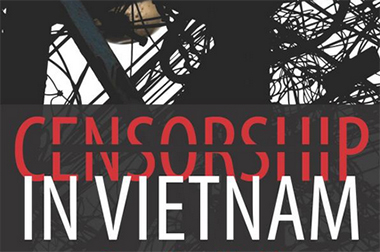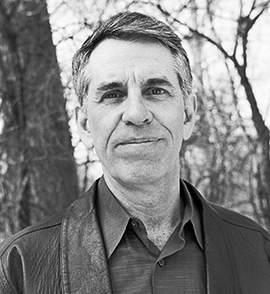The Missing Words
 |
|
Thomas Bass's new book. |
ALBANY, N.Y. (Oct. 27, 2017) – Thomas A. Bass describes what sounds like an author’s nightmare in his new book Censorship in Vietnam: Brave New World.
Censorship (University of Massachusetts Press) is the fine-grained story of what it took to get his book The Spy Who Loved Us translated into Vietnamese and published in Vietnam.
Bass, a professor of English who teaches in the Journalism Program, leads the reader through his five-year journey of negotiations with Vietnamese censors. It is a world in which history is rewritten, jokes are removed, and danger exists for translators and publishers who break the rules.
“This is an eye-opening, disturbing, sad, and altogether fascinating account of censorship in contemporary Vietnam,” wrote Tim O’Brien, author of The Things They Carried. “Even more than that, Thomas Bass introduces us to a number of brave Vietnamese poets and fiction writers who have endured almost unimaginable hardships merely for expressing the humane values that most Americans take for granted.”
One of those authors, Bao Ninh, habitually writes all night, only to destroy his work in the morning. Ninh’s book, The Sorrow of War, has been translated into 14 languages.
For Bass, who joined the University in 2005, Censored is the most personal of the seven books he has written. Used to being an investigative reporter, he now finds himself inadvertently at the center of the story.
“As we approach the 50th anniversary of the end of the Vietnam War, it’s about time we connected 1975 to the present,” Bass says. “I tuned into what Vietnam has been doing since the end of the war and what it has been doing to its own people.”
As he explains in the book, censorship begins way before the censors intervene. First, the editors pick a reliable translator who knows what he is supposed to do, and then the editors themselves begin removing anything that could be considered “sensitive.”
Bass finds this self-censorship most damaging.
“Self-censorship is the biggest problem,” he says. “People are just afraid to speak. The result? You don’t name things by their proper names.”
Only after this pre-censorship is a book sent to the official censors, who are scattered throughout the country’s cultural and publishing bureaus. This is when a book is officially censored. Chapters are removed, people disappear from the story, passages are cut, words are mistranslated or they are shaded so that euphemisms replace precise words.
“Censorship is on the rise around the world,” he says. China may be the worst offender, but Vietnam often follows the lead set by China.”
 |
|
Author and investigative reporter Thomas Bass. |
His friends in Vietnam don’t even bother to buy books, as they know they will only find the intact version of a book online.
“I arranged to have my last two books on Vietnam (The Spy Who Loved Us and Censorship) translated into Vietnamese and released in electronic versions that are stored in Berlin on a website that is hardened against attacks by Vietnamese trolls and censors,” Bass says.
By trolls, he means private citizens in Vietnam who enforce the government’s communist party messages.
Bass, who has secured more than $300,000 in grants for the University since 2012, thinks journalism remains a popular major among students because they want to write accurately, persuasively and quickly – and they know that here, they can.
“Even when teaching more than a hundred students, I treat their work like we are sitting in a newsroom, where we have to get the facts straight and be accurate and concise,” he says.
This spring, Bass will be on sabbatical in France, working on investigative reporting from Europe, North Africa, and other parts of the world he covers.
![]() For more news, subscribe to UAlbany's RSS headline feeds
For more news, subscribe to UAlbany's RSS headline feeds
A comprehensive public research university, the University at Albany-SUNY offers more than 120 undergraduate majors and minors and 125 master's, doctoral and graduate certificate programs. UAlbany is a leader among all New York State colleges and universities in such diverse fields as atmospheric and environmental sciences, business, education, public health,health sciences, criminal justice, emergency preparedness, engineering and applied sciences, informatics, public administration, social welfare and sociology, taught by an extensive roster of faculty experts. It also offers expanded academic and research opportunities for students through an affiliation with Albany Law School. With a curriculum enhanced by 600 study-abroad opportunities, UAlbany launches great careers.


